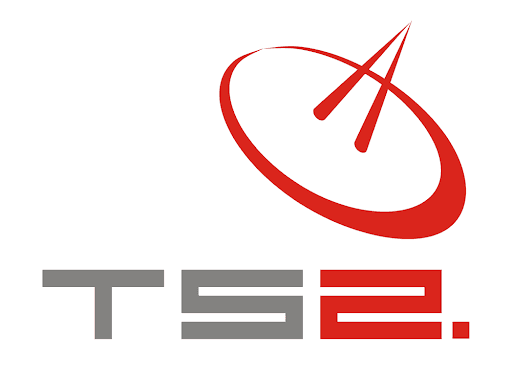Logistics Hub: Warsaw, Poland & Lviv, Ukraine
Technology Portfolio
Need something not listed? We are an authorised distributor/VAR for 60+ OEMs and can source virtually any satellite or unmanned-tech component within 5-14 days.
Broadband Satellite Internet
Starlink Gen 3 / Rev 4, Starlink Mini; GEO/NGSO Ku- & Ka-band VSAT terminals (Cobham, Hughes, iDirect)
Zero-touch provisioning, ground-block mounting, dynamic beam switching, SLA up to 99.7 %
Satellite Broadcast & Teleport
Full-transponder & occasional-use capacity on AMOS-7, Astra-4A, AzerSpace-1, Eutelsat 36B
Turn-key uplink, multiplexing (DVB-S/S2 & ISDB-T), 24/7 carrier monitoring & redundancy
Mobile Satcom & Satphones
Iridium Extreme, Thuraya X5-Touch, Inmarsat IsatPhone 2; Push-to-Talk (PTT) over satellite
National SIM registration, group call configuration, rental pool for short missions
IoT / M2M / Asset Tracking
Cobham Sailor 4300, Benish Universal trackers, ORBCOMM OGi modems
Real-time CAN-bus data, fuel & route analytics, integration with Kontrol Plus & Esri GIS
Earth-Observation & Geo-Analytics
SuperView, Capella, Satellogic, KOMPSAT-3A, Eros-B imagery
Task-on-demand, ortho/DEM generation, object-of-interest change detection, NDVI & flood maps
GNSS / Survey Solutions
Trimble R12i, Leica GS18 T, Septentrio AsteRx; NTRIP/RTK correction services
Cadastral & topographic survey, corridor mapping for utilities, as-built BIM deliverables
Unmanned Aerial & Ground Systems
VTOL drones (Atlas PRO, JAEGER); fixed-wing ISR (Silent Falcon); UGV platforms (Milrem THeMIS)
Crew training (EASA SORA-compliant), payload swap-out, rapid depot-level repair
Counter-UAS & Air-Defence Adjuncts
RF jammers (Cage Industries), radar/EO fusion sensors, passive RF-direction-finding kits
Site survey, spectrum analysis, layered C2 integration, 24-hour field replacement
Secure Networking & Cybersecurity
L2VPN/MPLS over SATCOM & LTE, Fortinet NGFW, Juniper ACX rugged routers
Crypto-agile tunnelling, tactical MANET nodes, 24/7 SOC-as-a-Service, red-team drills
Field Energy & Power Resilience
Rugged LiFePO₄ UPS, 48 V DC micro-grids, foldable PV kits (Goal Zero, EcoFlow)
Load modelling, hybrid-gen design, EMI/EMP hardening, preventive maintenance
Tactical Computing & Rugged IT
Getac B360 laptops, Panasonic TOUGHBOOK 40, Crystal Group RS110 servers
Image-chain accreditation, MIL-STD-810H certification audits, on-site IMAC-D
Rapid-Deployment Comms Kits
Fly-away satcom cases, inflatable masts, LTE-in-a-Box (parallel EPC)
30-min setup, IP-67 transit cases, hotspot coverage up to 5 km, option for HF/mesh back-haul
NEWEST SPACE TECHNOLOGY MARKET ANALYSES
satellite reports
Internet Access in Palestine: West Bank and Gaza
Palestine – encompassing the West Bank and Gaza Strip – has made strides in expanding internet access, but it lags behind global and regional standards due to unique political and[…]
Read moreAI Voice Clones Are Taking Over – Inside the Synthetic Voice Revolution of 2025
Introduction: The Rise of AI Voice-Over Artists In 2025, artificial intelligence is dramatically reshaping the voice acting industry. From Hollywood movie trailers to YouTube videos and radio broadcasts, AI-generated voices[…]
Read moreDrone Laws in Indonesia 2025: Comprehensive Guide for Hobbyists and Commercial Operators
Indonesia has a well-defined legal framework governing the use of drones (pesawat udara tanpa awak) for both recreational and commercial purposes. Regulations have evolved rapidly since 2015 to address safety,[…]
Read moreThe Ultimate 2025 Guide to AI Coding Tools: What’s Hot, What’s Hype, and What’s Coming Next
AI Coding Tools in 2025: Features, Trends, and Expert Insights The software development landscape in 2025 is teeming with AI-powered coding tools that promise to supercharge productivity. From AI pair[…]
Read moreAI Teachers Take the Podium: How Digital Professors and Virtual Tutors Are Revolutionizing Education
Artificial intelligence is rapidly moving from behind the scenes to front and center in classrooms and corporate training. “AI lectors” – AI systems that deliver lectures or assist in teaching[…]
Read moreVirtual Lovers and AI Best Friends: Exploring the Booming World of AI Companion Apps in 2025
AI Companion and Love Apps: Features, Comparisons, and Trends AI companion apps – offering virtual friends, romantic partners, and “digital soulmates” – are exploding in popularity. From AI girlfriends that[…]
Read moreEverything Coming in 2025–2026: The Future of Tech Is Finally Here
Upcoming Tech Products in 2025 and 2026 Tech enthusiasts, buckle up – 2025 and 2026 are poised to deliver a wave of cutting-edge products and breakthroughs across every sector. From[…]
Read moreSpace Race 2.0: Starlink, SpaceX, and the New Satellite Wars—How Today’s Space News Is Shaping Our Future / Updated: 2025, July 12th, 12:02 CET
The New Golden Age of Space: Streaming, Satellites, and Superpowers The 2020s are rapidly becoming a new golden age for space exploration and technology. From the democratization of space access[…]
Read moreAI News Today: Shocking Breakthroughs, Job Shakeups, and the Battle for Human Values / Updated: 2025, July 12th, 12:01 CET
Artificial intelligence (AI) is no longer a distant promise—it’s the engine powering seismic shifts across industries, societies, and even our personal lives. From billion-dollar investments and regulatory showdowns to ethical[…]
Read moreSamsung’s Triple-Foldable Galaxy G Fold, AI-Powered Tech, and the Next Wave of Innovation: The Ultimate Tech News Breakdown / Updated: 2025, July 12th, 12:00 CET
Samsung’s Triple-Foldable Galaxy G Fold: The Foldable Revolution Accelerates Samsung is once again at the forefront of mobile innovation with its upcoming triple-foldable smartphone, tentatively called the Galaxy G Fold.[…]
Read moreAI Boom: From ChatGPT’s New Rivals to Deepfake Videos, Here Are the Hottest Trends in June 2025
“Artificial Intelligence” as an exploding trend in 2025 – AI is reshaping everything from chatbots and art to video and code. Chatbots Everywhere: The Rise of Conversational AI Not long[…]
Read moreFrom AI Kisses to 1,000,000‑Token Brains: The Jaw‑Dropping AI Trends of 2025
Artificial intelligence has exploded into every corner of life in 2025. A flood of new AI tools, viral apps, and even controversies is capturing millions of searches. We’re seeing everything[…]
Read moreSamsung’s Foldable Revolution, Apple’s Next Big Leaks, and the AI Arms Race: The Hottest Tech News of July 2025 / Updated: 2025, July 12th, 00:02 CET
Samsung Galaxy Z Fold7 & Z Flip7: Foldables Finally Get Competitive Samsung has officially unveiled its seventh-generation foldables—the Galaxy Z Fold7 and Z Flip7—at Galaxy Unpacked 2024, signaling a renewed[…]
Read moreAI News Today: Grok’s Scandals, Global Regulation, Job Losses & The Race for Ethical, Human-Centric Artificial Intelligence / Updated: 2025, July 12th, 00:02 CET
Introduction: A Week That Redefined Artificial Intelligence The past week in artificial intelligence (AI) has been nothing short of seismic. From Elon Musk’s Grok chatbot igniting global controversy with hate[…]
Read moreSpace News Explosion: Solar Sails, Interstellar Visitors, and the Race to Dominate the Final Frontier / Updated: 2025, July 12th, 00:00 CET
Solar Sails and Early Space Weather Warnings: A New Era in Space Safety Space weather—driven by solar storms and coronal mass ejections (CMEs)—poses a growing threat to our technology-dependent civilization.[…]
Read moreTS2 Space Sp. z o.o.
TS2 SPACE, LIM Center, XVI floor, Aleje Jerozolimskie 65/79, PL 00-697 Warsaw, Poland
phone +48 22 630 70 70, +48 22 630 70 70, fax +48 22 630 70 71
7:00 AM – 5:00 PM Greenwich Mean Time (GMT)















